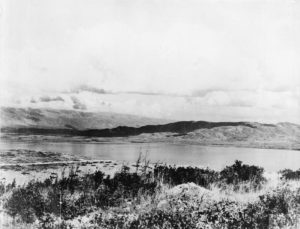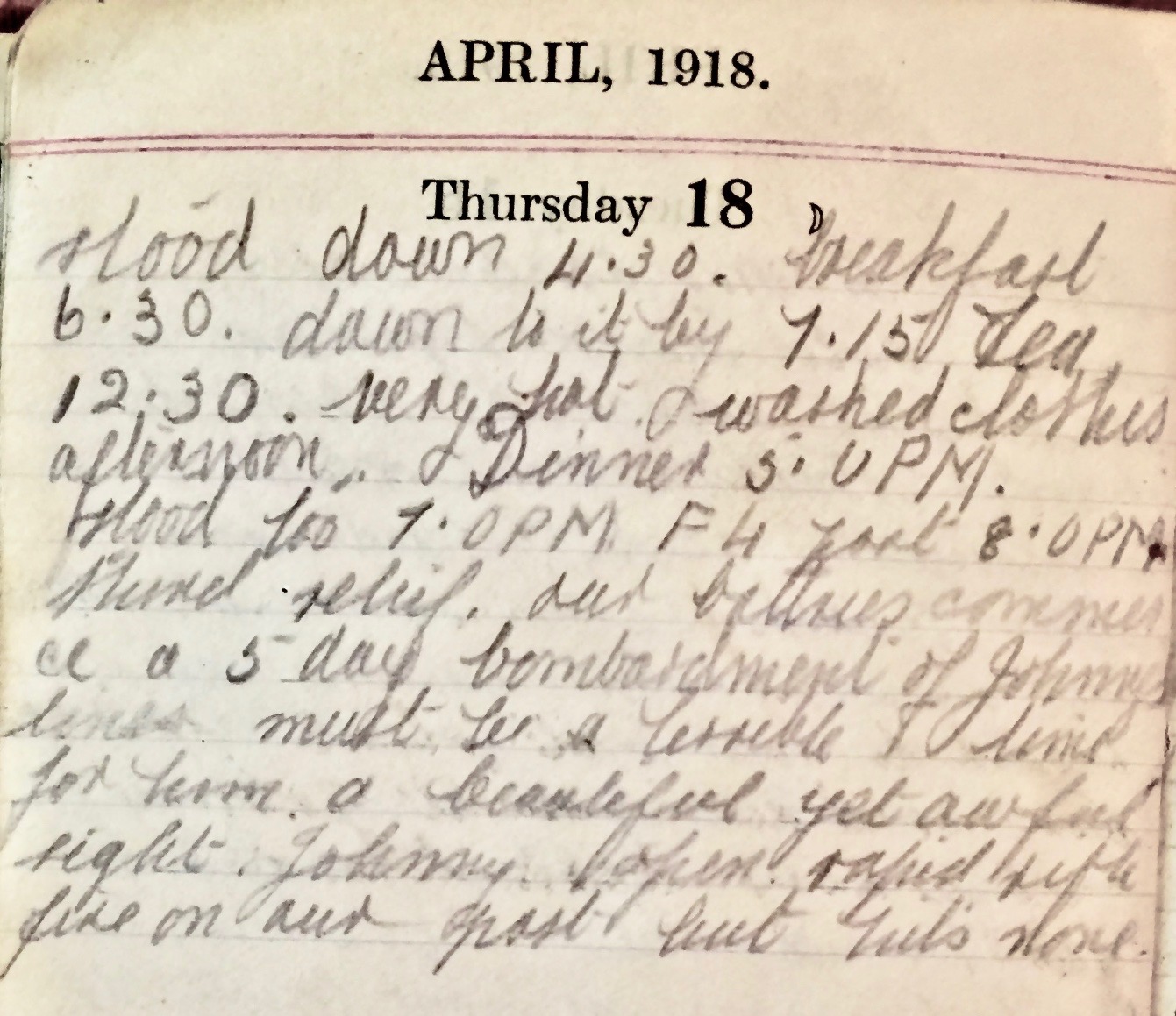Thursday April 18th, 1918
Stood down 4:30. Breakfast 6:30. Down to it by 7:15. Tea 12:30. Very hot. Washed clothes in afternoon. Dinner 5pm. Stood to 7pm #4 post. 8pm third relief. Our batteries commence a five day bombardment of Johnny’s lines. Must be a terrible time for him. A beautiful yet awful sight. Johnny opened rapid rifle fire on our post but hits none.
The Countryside & Bombardments
According to Frank this is the start of a five days bombardment of the enemy lines. Having been on the receiving end of rifle fire today, and artillery fire quite regularly, he would know what it felt like to be shot at. As Frank writes today, ‘Must be a terrible time for him. A beautiful yet awful sight.’

It must also have been strange and terrifying for the locals. The Allies arrived in Salonika in 1915 with little by-your-leave to the Greek authorities. King Constantine was German-leaning, Prime Minister Venizélos the opposite, and the Greek population probably rather ambivalent about the war going on outside their borders. By mid 1917, Constantine is in exile and replaced by his second son, Alexander. The new King and Venizelos formally bring Greece into the war on the side of the Allies. Thus since 1915, into this agrarian backwater, has come the full thunder of modern warfare.
The photograph shows a panorama of the hills of Dojran, including Grand Couronne and part of Dojran Lake. It is taken from the Hilt, one mile west of Dojran.*
As Staff Sergeant William Lee of the RAMC recalled, ‘Sometimes in my off-duty hours I roamed the surrounding country. Salonica was thirty miles away, and we were prohibited from entering the local villages. In the quiet of the evening I wandered over the undulating land. There were a few paths and few roads in this district. The roads were mere cart-tracks, with ruts five or six inches deep and at very rate intervals one would see a lumbering oxen-drawn wagon pass by. The quietness was extraordinary and impressive until disturbed by the thunder of the guns at Dorian.’¹
13th (Service) Battalion War Diary – 18th April 1918 – Crow Hill
Everything in the actual sector was very quiet. What appears to be the commencement of a bombardment by our artillery has started in No 1, 2 & 3 Sectors. Our guns were apparently wire cutting, harassing and doing counter battery work. Enemy’s retaliation on those sectors was strong. Enemy fired a few light shells over occasionally on Sporan, Glengarry, Gog and Goldies II during the day. At 18:10 hrs our Stokes Trench Mortars registered their barrages in the sector, they had a fair proportion of ‘Duds’ and air burst.
There was a certain amount of aerial activity on both sides, but enemy plans only remained over their own lines. Patrols found no enemy outpost wire near Anvil, our trench on Goldies I is in fair condition but the eastern end is full of water, there are no traces of recent occupation. Nothing was seen or heard of enemy in Dautli. The ground between Col Post and Dautli is flat and easy for patrolling. The ravine by the village has a good flow of water but can be crossed easily. Individual men were seen in trenches on Dolina, Devedzelli Hill and in the ravine immediately north of Diamond Hill. Captain FT Taylor MC is struck off under GRO 1011.
References & Further Reading
¹ ‘Expenses Paid’ by Staff Sgt William J Lee, RAMC (1915-1919) from the collection of Salonika Campaign Society. At the time he was stationed at 21st Stationary Hospital. It had 800 beds and acted as a Casualty Clearing Station for the Field Ambulances in the vicinity.
* (Q 69029), copyright Imperial War Museums


